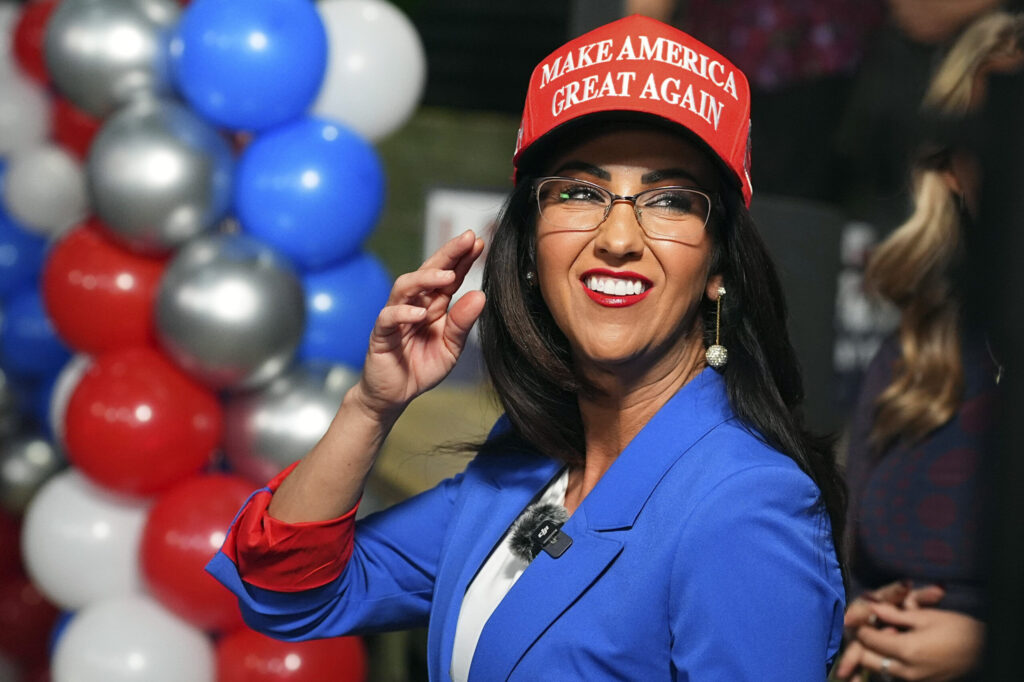Colorado’s Michael Bennet rode outrage over last government shutdown to presidential bid | TRAIL MIX

Only weeks after the longest federal government shutdown in U.S. history ended with congressional Democrats’ demands to restore health care funding previously cut by Republicans left dangling, the high-stakes standoff that dominated political news for 43 days has already receded into the hazy mists of the country’s addled short-term memory.
National polling released this week appears to show that Democrats emerged from the shutdown in a stronger position, CNN polling analyst Harry Enten reported on Nov. 25.
Compared to his pre-shutdown numbers, President Donald Trump’s aggregate approval rating fell 5 points to a record low 15 points underwater, while the Democrats’ lead in the generic congressional ballot increased over the same period from 3 points to 5 points, with the party holding a 9-point advantage among highly motivated voters.
“I don’t think how you can look at both of those angles and conclude anything other than that Democrats, from a political point of view, won the shutdown,” Enten concluded.
That’s despite festering frustration among Democrats — including Colorado’s two U.S. senators and four members of the state’s House delegation — over the way the shutdown ended, as a handful of the party’s moderate senators folded their hand without winning any of the concessions Democratic lawmakers had demanded at the outset from Republicans.
“We should reopen the government, but I refuse to do it at the expense of families who are simply trying to pay for health care,” Democratic U.S. Sen. Michael Bennet said on Nov. 11, ahead of the Senate vote. “Coloradans deserve better.”
His colleague, John Hickenlooper, slammed Republicans for “(refusing) to come to the table and work to tackle the health care crisis,” vowing to keep up the fight after enough of his fellow Democrats gave in and voted to end the party’s filibuster.
In exchange for supporting a resolution to fund the government into January, seven Democrats and an independent senator who caucuses with the Democrats won a pledge from GOP leaders that the chamber will vote in December on extending enhanced Obamacare subsidies to help 22 million Americans pay for health insurance they purchase on the individual market.
It’s a far cry from the Democrats’ initial position that included reinstating the Affordable Care Act subsidies before they expire at the end of the year and reversing the nearly $1 trillion cut from Medicaid spending over the next decade in the budget Republicans passed this summer.
Meanwhile, Republican House Speaker Mike Johnson — who refused for nearly two months to convene his chamber, until the Senate passed legislation to reopen the government — wouldn’t commit to scheduling a vote on the subsidies, though pressure is mounting on Trump and his fellow Republicans to come up with a fix.
“The Democrats owned this shutdown, and there is no denying it,” U.S. Rep. Jeff Crank, a Colorado Springs Republican, said after the House voted to affirm the Senate funding package. “It is a shame that they chose their own partisan games over paying our troops and the federal workforce.”
U.S. Rep. Jason Crow, an Aurora Democrat, disagreed.
“Colorado families deserve better than an alleged promise from Republicans who have repeatedly gone back on their word and who routinely hand Congressional authority over to a president who flaunts the law,” Crow said after the bill headed to Trump for a signature.
While this year’s shutdown ended not with a bang but a whimper, Bennet helped usher the previous record-holding shutdown to a roaring conclusion nearly six years ago with a fiery Senate floor speech that echoed across the Democrat’s political trajectory.
Clips of Bennet’s impassioned remarks went viral on Jan. 24, 2019, the day before the 35-day shutdown ended, after the typically reserved lawmaker laid into U.S. Sen. Ted Cruz in a 24-minute, impromptu stemwinder sparked by the Texas Republican’s lament that some first responders weren’t getting paid, while Congress couldn’t agree on legislation to fund the federal government.
Much of the government had been shuttered since Dec. 22, 2018 — nearly two years into Trump’s first term — amid an impasse over Trump’s insistence that lawmakers approve $5.7 billion to build a wall at the southern border with Mexico. Since Congress had already passed several “minibus” appropriations bills covering various departments, it was only a partial shutdown.
The shutdown dragged on into January as lawmakers negotiated between chambers and with Trump, who threatened to veto any bill that didn’t fully fund his signature border wall. Days into the new year, Democrats claimed the House majority after new members elected in the 2018 midterms took office, while Republicans kept their majority in the Senate.
That’s where Cruz proposed a measure to pay Coast Guard personnel while leaving the rest of the shutdown in place. Moments later, Bennet took the floor.
“I have worked very hard over the years to work in a bipartisan way with the presiding officer, with my Republican colleagues, but these crocodile tears that the senator from Texas is crying for first responders are too hard for me to take,” said Bennet, who appeared to gain steam as he reminded fellow senators about Cruz’s starring role in the previous lengthy government shutdown.
“Because when the senator from Texas shut this government down, my state was flooded. It was underwater. People were killed. People’s houses were destroyed. Their small businesses were ruined forever,” Bennet said, referring to the 2013 Republican-led shutdown, which aimed to block implementation of the Affordable Care Act.
Lasting 16 days, the shutdown took place in the aftermath of historic flooding in Colorado that left eight dead.
“And because of the senator from Texas, this government was shut down. For politics,” Bennet said, adding that Cruz had been “no help to the first responders, to the teachers, to the students whose schools were closed with a federal government that was shut down because of the junior senator from Texas.”
Cruz dismissed Bennet’s speech as “a great deal of time yelling,” but progressive political observers went nuts on air and online, boosting clips of Bennet’s speech to more than 11 million views within 24 hours, making it the most-viewed congressional video in C-SPAN history.
Bennet, who had recently teased a potential 2020 presidential run — he would enter the race a few months later — got plenty of encouragement in the wake of the speech, including from NBC News reporter Jonathan Allen, who proclaimed that Bennet had “probably launched his presidential campaign on the Senate floor today.”
The Democrat’s turn in the spotlight, however, drew thumbs down from his usual critics.
“That was weird,” tweeted the Denver Republicans. “Much prefer the quiet, soft spoken Sen Bennett… who often seems shy and introverted. Thought his display was very un-becoming of him. Sad to see his decline.”






